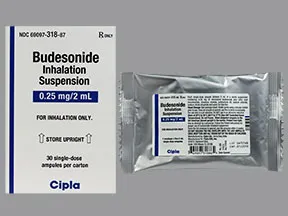NEBRASKA LEGISLATURE
The official site of the Nebraska Unicameral Legislature

Sen. Steve Erdman
District 47
The content of these pages is developed and maintained by, and is the sole responsibility of, the individual senator's office and may not reflect the views of the Nebraska Legislature. Questions and comments about the content should be directed to the senator's office at serdman@leg.ne.gov
July 10th, 2020
Have you ever wondered why Taiwan, a nation of 24 million people, has experienced so few deaths from the coronavirus that they could all fit comfortably inside of a minivan (7 deaths)? Taiwan’s population is so large that if the nation ever practiced social distancing, people would have to stand out in the ocean! Or, how about Japan? Japan is a nation of 121 million people, but they have only seen 982 total deaths from the coronavirus. Similarly, South Korea has a population of 50 million, but only 288 coronavirus deaths have occurred there, according to the Johns Hopkins COVID-19 Dashboard as of July 10.
So, what are these Asian countries doing that we aren’t doing here in the USA? The answer is actually quite simple: Doctors in these nations are treating hospitalized coronavirus patients with inhaled corticosteroids. Here in the USA we know this respiratory therapy primarily as a Budesonide nebulizer. Budesonide is cheap, it has already undergone extensive testing for more than 20 years in the USA, is safe to use on two pound infants in the Natal Intensive Care Unit, and is approved by the Food and Drug Administration to treat various other respiratory ailments. Now we can add the coronavirus to the long list of diseases treated by inhaled Budesonide therapy.
Dr. Richard P. Bartlett is a physician who practices medicine down in Midland, Texas. Dr. Bartlett recently wrote a letter to Texas State Senator, Bob Hall, recommending Budesonide as a pre-hospital community-based treatment for COVID-19. I am in possession of Dr. Bartlett’s letter. Dr. Bartlett began using inhaled Budesonide therapy back in March of this year and he now reports that 100% of the patients he has treated since March have become symptom free. Dr. Bartlett has treated several high risk patients, including one elderly woman with two types of blood cancers, who was immunocompromised, and who was undergoing chemotherapy and radiation at the time of her Budesonide treatment. She recovered from COVID-19 after receiving inhaled Budesonide therapy.
Another inexpensive drug which has proven effective for treating COVID-19 is hydroxycloroquine. Although this drug was severely criticized in the media and was even withdrawn for emergency use by the Food and Drug Administration after it was touted by President Trump, a new study has proven its usefulness after all. A team of researchers at the Henry Ford Health System in Southeast Michigan released the findings of their study to the public on July 2, 2020.
Dr. Marcus Zervos, who is the division head of infectious diseases at the Henry Ford Health System, led the study which followed 2,541 coronavirus patients. 26.4 percent of those who were not given hydroxychloroquine died compared to only 13.5 percent of those who were given the drug. So, hydroxychloroquine represents another effective weapon in the physician’s arsenal against COVID-19.
On the opposite end of the spectrum lies the drug most highly touted by Dr. Anthony Fauci and distributed by Dr. Debra Birx, namely Remdeslvir. A new case report by Dutch investigators published in Clinical Infectious Diseases this month links Remdeslvir to liver toxicity. So this very expensive “miracle drug” has turned out to be not so miraculous after all.
If those leading the fight against COVID-19 were to seriously consider the usefulness of Budesonide and hydroxychloroquine, instead of Remdeslvir, I believe we could defeat COVID-19. The mortality rate in America from COVID-19 does not need to be nearly as high as it currently is. The USA is leading the world in COVID-19 deaths. On Friday the number of coronavirus deaths rose to 133,847 Americans. Hasn’t the time come for us to start listening to those with a proven treatment over the coronavirus? I think so!

Sen. Steve Erdman
P.O. Box 94604
Lincoln, NE 68509
(402) 471-2616
Email: serdman@leg.ne.gov
- Column (379)
- District Info (8)
- Events (6)
- Opinion (2)
- Press Releases (13)
- Uncategorized (4)
- Welcome (1)
-
Appropriations
Committee On Committees
Rules
Building Maintenance

Streaming video provided by Nebraska Public Media